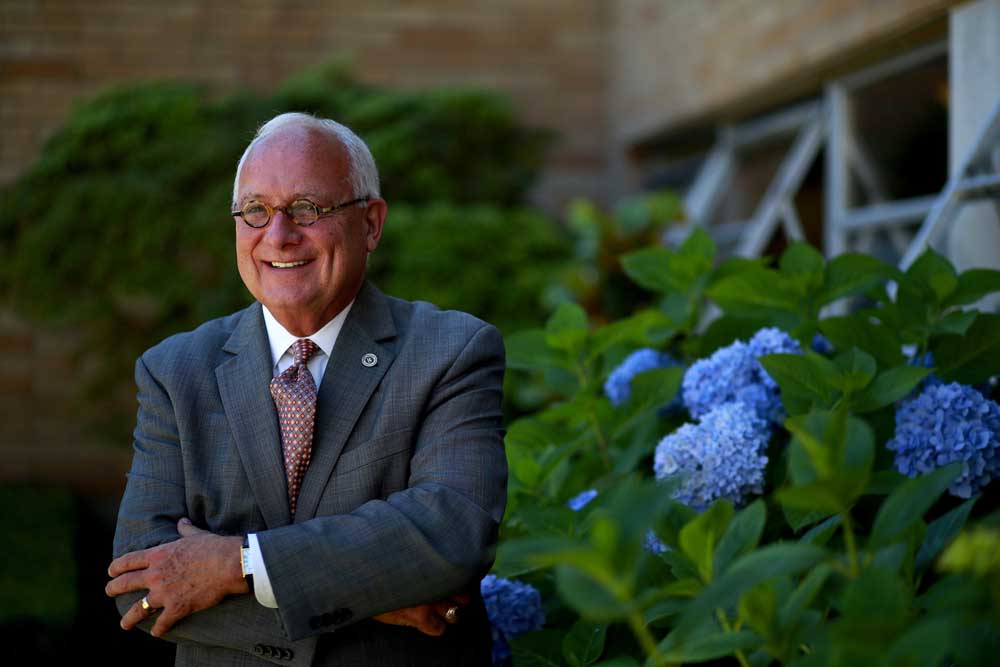Doctor leaves mark on university and world of natural medicine
Published 12:00 am Thursday, July 9, 2015

- Erika Schultz / The Seattle TimesDaniel Church spent 10 years as the head of Bastyr University, a nonprofit, private university focusing on science-based, natural medicine.
KENMORE, Wash. — Daniel Church had never heard of Bastyr University when he accepted the job as its president in 2005. But with a background that included running a hospital in Ohio and serving as dean of a small, liberal-arts college, he saw an opportunity to bridge the divide between conventional and natural medicine.
Over the past 10 years, Church, 70, is credited with helping to raise the legitimacy and visibility of natural, science-based medicine and holistic care while growing the college’s size and academic rigor. Church retired recently after 10 years at Bastyr, the nation’s largest accredited naturopathic medical school, and one of its most highly regarded.
“His vision has always been to expand the footprint of natural health,” said Dr. Kasra Pournadeali, president of the American Association of Naturopathic Physicians and a former Bastyr student and faculty member.
During Church’s tenure, the university increased its enrollment by about 25 percent, to 1,200 students, opened a branch campus and clinic in San Diego, California, built 11 dormitories on its Kenmore campus and relocated and expanded its teaching clinic in Seattle’s Wallingford neighborhood.
It also added eight new accredited degree programs in fields such as nutrition, exercise science and public health, bringing the total offered to 18.
“The growth has been unbelievable,” said Pournadeali. “There were maybe five or six (degree programs) when I was in training 20 years ago.”
Other health professionals said Church raised the quality of research at Bastyr and in doing so, further documented the effectiveness of alternative medical practices when used with other treatments. He was also a champion for Bastyr’s interdisciplinary approach to health care, said Thomas Trompeter, CEO of HealthPoint, a network of community clinics in the Puget Sound region working with low-income and underserved communities.
“Dr. Church has been a real advocate for breaking down the artificial barriers between disciplines with a focus on serving patients and the broader community,” Trompeter said.
“We have naturopathic physicians on our staff. We help train Bastyr’s residents. Our long-standing relationship with the college significantly deepened during Dan’s tenure,” Trompeter said.
Seventeen states, including Washington, license naturopathic doctors to serve as primary care physicians. Bastyr trains the students in basic medical disciplines such as anatomy and physiology but combines those with case studies for a more integrated experience. Bastyr students also have extensive training in complementary treatments including acupuncture, Oriental medicine and herbal sciences.
Trompeter and Pournadeali both credited Church with enhancing the reputation of the university through his service, and those of faculty members, on other medical and community boards including Seattle’s Harborview Medical Center, the University of Washington, the Fred Hutchinson Cancer Center and others.
Kenmore Mayor David Baker said President Church brought a welcome openness and engagement to relations with the city including opening the Bastyr campus to the public. He said Church’s personal qualities, including kindness and concern for others, further helped restore what had been a rocky relationship between the city and the college.
The university purchased its 51-acre Kenmore site on the grounds of the former St. Edward Seminary from the Archdiocese of Seattle in 2005, achieving Church’s goal of finding a permanent home for the university.
Baker said the school has continued to allow the city to use its athletic fields and is a supporter of civic events including the Fourth of July fireworks. Baker was present for the opening of the new LEED-certified dormitories.
“They’re beautiful facilities. I was wishing I could be a student again,” he said.
During his presidency, Church also established a Center for Social Justice and Diversity on campus. Recently, in one of his final messages to the university community, he wrote that the next step for the school is to ensure that all patients have access to quality health care regardless of their race, income or ZIP code.
“Did you know that 97.1 percent of our nation’s health care spending is applied to half of our population, while only 2.9 percent is left to meet the needs of the remaining half?…This needs to change,” Church wrote.
He ended the letter by calling on Bastyr students and graduates to “take on leadership roles that go beyond providing health care.”
In May, the university named Charles “Mac” Powell to succeed Church. Powell was previously president of John F. Kennedy University in Pleasant Hill, California. “Dr. Church has been a real advocate for breaking down the artificial barriers between disciplines with a focus on serving patients and the broader community,” Powell said.








